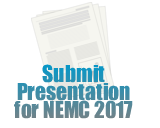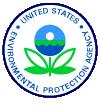2017 NEMC
Aug 7-11, 2017 • Grand Hyatt • Washington, DC

Presentations Now Available
PDFs of presentations from 2017 NEMC are available on the Technical Sessions page. Click here to go there now.
About NEMC
The National Environmental Monitoring Conference (NEMC) is the largest conference in North America focused on environmental measurements. In 2017, NEMC was held August 7-11 at the Grand Hyatt in Washington, D.C. The theme of the 2017 conference was "Effectively Communicating Scientific Information."
NEMC is held annually as a part of the Environmental Measurement Symposium -- a combined meeting of the NEMC and The NELAC Institute (TNI)'s Forum on Environmental Accreditation. The Symposium is co-sponsored by TNI under a cooperative agreement with the U.S. Environmental Protection Agency (EPA).
Some of the highlights for the week include:
- A special half-day general session focused on the conference theme;
- Over 160 oral and poster presentations on a variety of cutting-edge environmental monitoring issues;
- Meetings of TNI Committees to further TNI efforts on environmental laboratory accreditation, proficiency testing, and accreditation of field sampling and measurement organizations;
- An exhibit program showcasing the latest innovations in environmental monitoring;
- Special keynote presentations on topics of general interest; and
- An open meeting of EPA's Environmental Laboratory Advisory Board
- Laboratory Scientists, Managers and Directors
- QA/QC Managers
- Regulatory Affairs Managers
- Senior Analysts
- Field Sampling Management Organizations (FSMO)
- Students, instructors, researchers, and others in the related academic community
- Anyone else concerned with environmental monitoring
All Symposium attendees have the valuable opportunity to share new monitoring approaches and technologies, and contribute to discussions regarding regulatory issues and initiatives. As an attendee, you are able to:
- have one-on-one discussions with key regulators about problems and issues facing the industry;
- obtain the information you need to better plan for future capital purchases, research, and staffing levels;
- learn how to save time and money when performing sampling and analysis techniques;
- improve the quality and efficiency of your analyses; and
- learn about new technologies and regulations.




